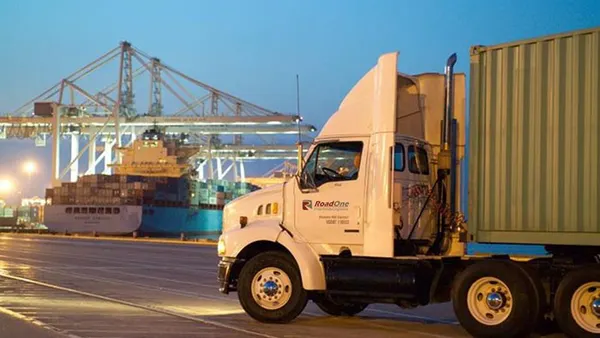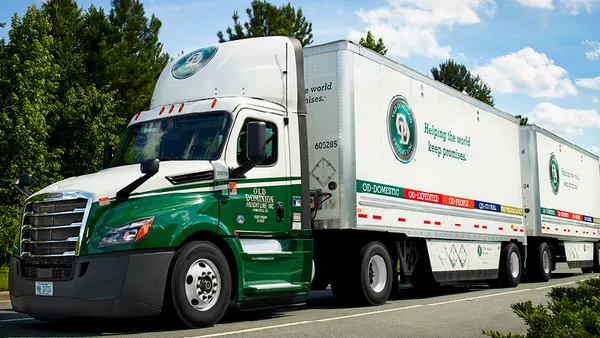Dive Brief:
- Marketing departments are prioritizing brand strategy ahead of analytics, personalization and marketing technology as the coronavirus pandemic leads to budget cutbacks, per an announcement Gartner shared with Transport Dive sister publication Marketing Dive. Thirty-three percent of chief marketing officers (CMOs) rank brand strategy as one of their top three priorities, up from "near the bottom of the list in 2019."
- The survey found pre-pandemic marketing budgets were flat coming into 2020, making up 11% of company revenue. Almost half (44%) of CMOs have seen midyear budget cuts because of the health crisis, with 11% facing decreases of more than 15%, per Gartner.
- About three quarters (73%) of CMOs expect the pandemic's effects to be short-lived and have a positive outlook for the next 18 to 24 months. Fifty-nine percent of CMOs predict their marketing budgets will increase in 2021, an outlook that Gartner warns may be too optimistic.
Dive Insight:
Whether firms are recruiting drivers or drumming up interest in new equipment, marketing remains a necessary aspect of business strategy — even as market conditions remain uncertain.
"Brand awareness and relevance in times of strife is more important than ever," Ewan McIntyre, an analyst for Gartner for Marketers, said in the announcement.
But CMOs may be out of step with other C-suite executives that are preparing for more pessimistic scenarios, per Gartner. CEOs and CFOs are creating plans that include the possibility of a second wave of COVID-19. A resurgence in infections may lead more regions to reinstate lockdowns that would dent consumer spending and negatively affect many industries.
If governments order businesses to close again in several areas, "it would probably put us out of business," Royal Jones, a fleet executive for Mesilla Valley Transportation, told Transport Dive. "This country cannot afford another shutdown."
While the panic-buying of March stimulated trucking rates until the end of the month, the shutdowns of schools, sporting events and businesses hurt some fleets. Jones' fleet does a significant amount of business with automotive plants and other industries, which were closed temporarily in March and April.
But confidence is growing in the trucking industry, reflected by an increasing number of Class 8 orders and encouraging jobs numbers.
"As we progress into the 'recover' and 'renew' phases of this pandemic, CFOs will turn their attention to profitability, and marketing has the dubious honor of topping the list of functions where finance will look to trim expenses even further," McIntyre said. "CMOs should plan for future budgetary pressures now, rather than gamble on budgets bouncing back."
CMOs should develop plans that separate essential costs from ones that can be eliminated to deliver greater efficiency and return on investment (ROI), he said.
While 28% of CMOs have canceled media buys, they remain confident about the outlook for paid media in the next 12 months. Seventy-four percent of CMOs plan to boost spending on digital advertising and 66% expect to increase spending on paid search as digital media consumption rises. Investments in paid, owned and earned digital channels make up 80% of multichannel budgets, including 22% for digital and search advertising, 11% for social marketing and 10% for websites.












